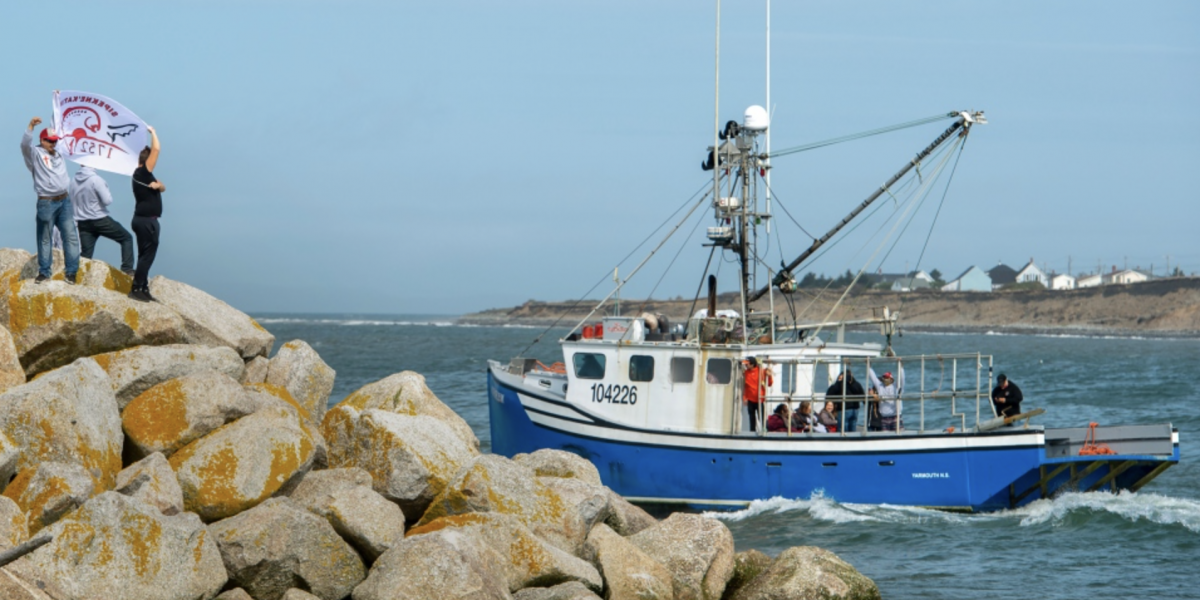Mi'kmaq Fishing Rights
By Ibrahim Fadel, Truth & Reconciliation Summit - May
2021

Supporting Mi’kmaq fishers. Credits to Spring magazine
The Mi’kmaq are indigenous to the
Atlantic provinces of Canada. They have fished cod and shellfish on their land for thousands of years. The
nation signed several “Peace and Friendship Treaties” with British colonizers between 1725 and 1779 which
supposedly established peaceful relations between the Mi’kmaq and the British while maintaining the community’s
rights to fish on their land. Conflict between the Mi’kmaq and the British, however, continued, and at the
beginning of the 19th century, the British insisted that the Mi’kmaq give up their way of life and settle on
farms.
Today, Mi’kmaq are still fighting for their rights to fish on their land. In 1993, Mi’kmaq fisher Donald
Marshall Junior went fishing for eel off Cape Breton during the offseason without a license. When he returned,
police arrested him for selling eels without a license, fishing without a license, and fishing during the off
season with illegal nets. Marshall’s legal battle eventually made it to the Supreme Court where they ruled that
Mi’kmaq fishers have the right to fish for a “moderate living”. The language of this ruling was vague and open
to interpretation which has led issues between indigenous and non-Indigenous fishers in Canada. The Supreme
Court later clarified that it is possible to regulate Indigenous fisheries; however, these regulations must keep
public objectives, such as conservation, in mind. Non-Indigenous fishers, citing the Marshall ruling, have
argued that Indigenous fishers must face the same seasonal restrictions as them.
It is apparent that Mi’kmaq fishing rights remain legally unclear. The government of Canada has been
non-committal in their dealings with both Indigenous and non-Indigenous fishers in Eastern Canada. Decades have
passed and the government has still not explicitly defined what constitutes a “moderate living”. It remains
unclear to what extent Indigenous fishers can be regulated; furthermore, the Department of Fisheries recently
declared that they would not be issuing fishing licenses to Indigenous fishers outside of the commercial season.
Both Indigenous and non-Indigenous fishers agree that the government’s inaction is unacceptable. Until the
government decides to work out a solution, Mi’kmaq fishers will remain in limbo, unable to exercise their treaty
rights.
